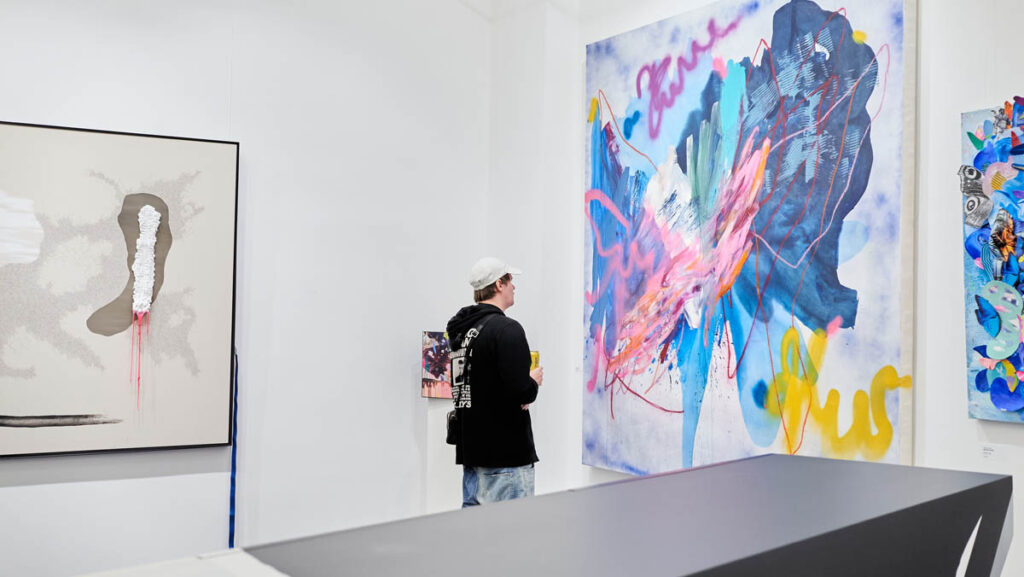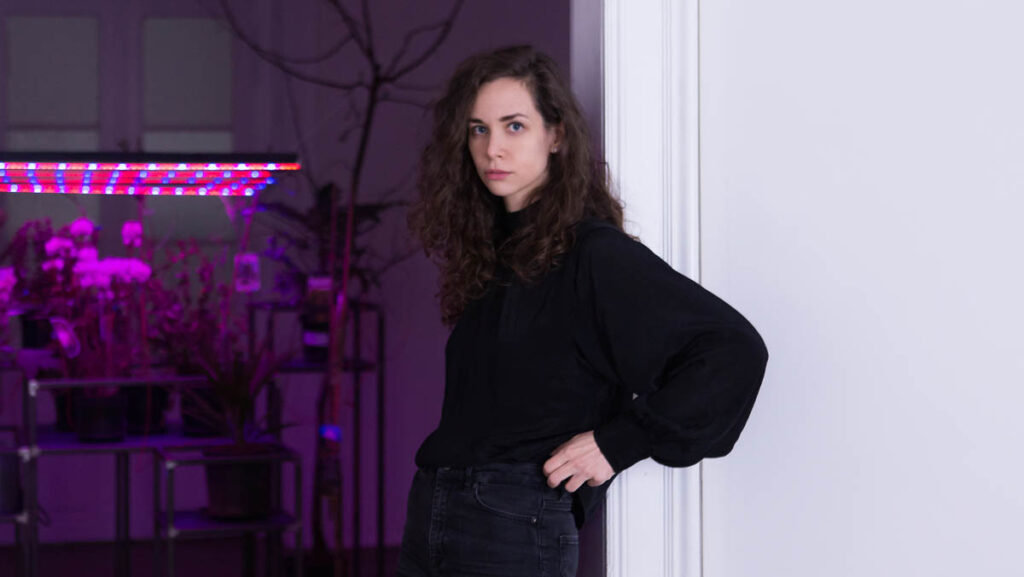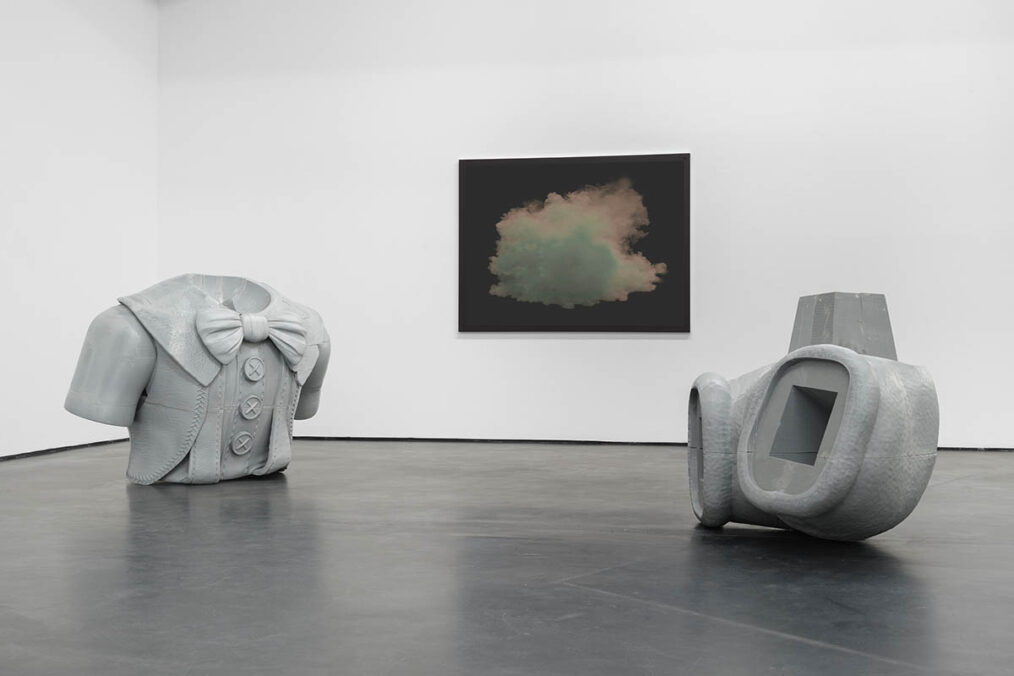
Jaworski‘s version is a digital appropriation of the literary figure. In the 3D printing process, the individual parts are produced separately, which is reflected in the spatial installation. However, the fragments are mentally assembled into a complete, recognizable body. In its effect, the figure is at once uncanny and lifeless, as well as playful. Personifying the lie, it questions the independence of narratives, but also, through its material aesthetics, the trustworthiness of new technological developments. NUMBERS (2024) not only challenges conventional proportions, but connects to the cosmic whole through the eyes of the headpiece made of meteorite slices.
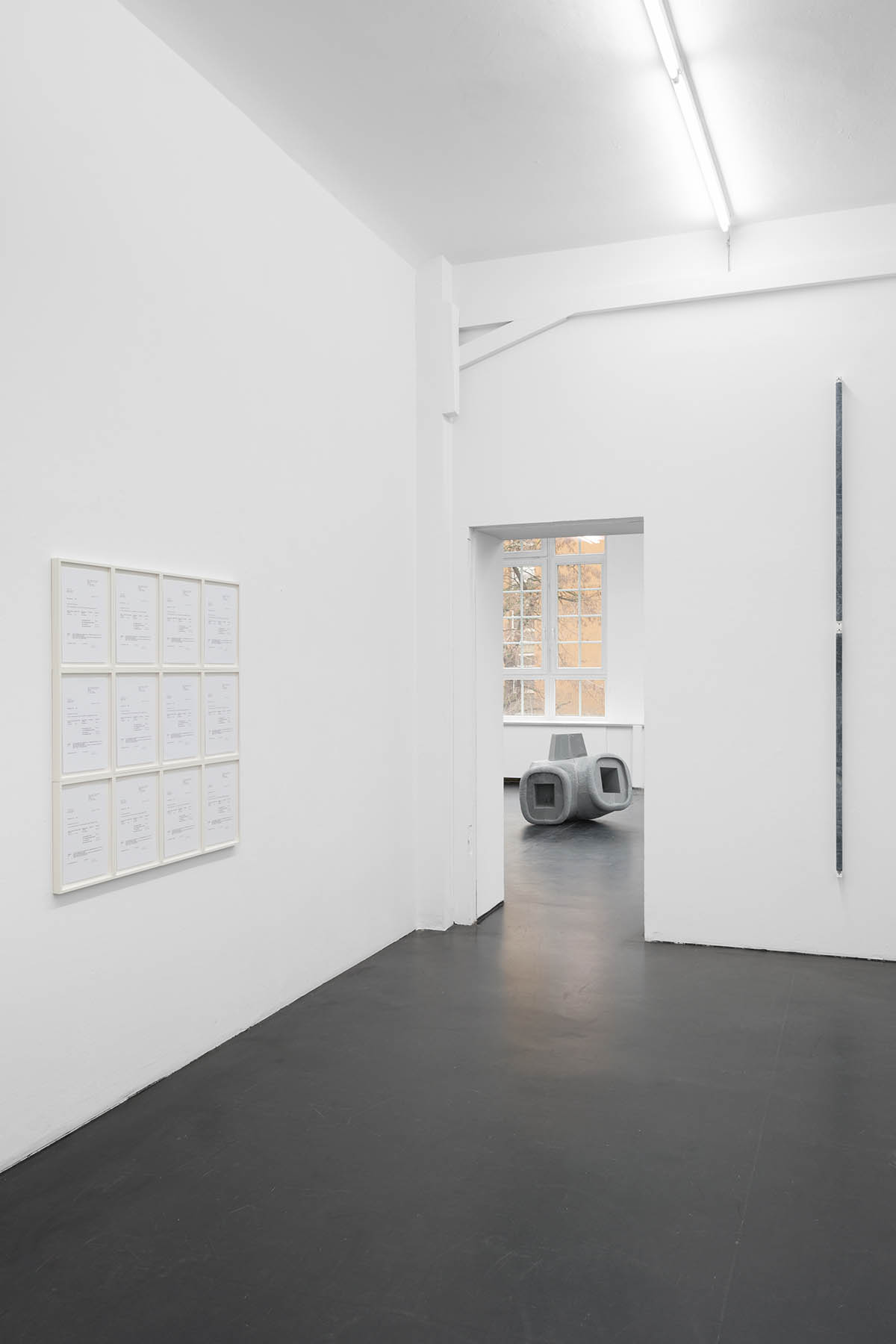
In the exhibition, Jaworski‘s examination of pictorial traditions and digital perception of space is illustrated by his UV pigment prints on semi-transparent stainless steel mesh AEON 001–003 (2024). These works explore the relationship between image and content, implying a transition to digital landscapes through pixel-like surfaces. Against a black background and in dramatic colors reminiscent of the chiaroscuro technique of Italian painting, digitally rendered cloud formations emerge, seeming to float like holograms in the pictorial space. When viewed from close, the structure of the image appears to be abstract and synthetic, while from a distance it appears as a unified whole. Similarly, a cloud is created by many small particles briefly merging into one ephemeral body. Both the cloud motif and the format suggest a landscape which is in the process of dissolution, almost demonstrating a dematerialization of the image-carrying medium.
For SIKHOTE ALIN (2015), Jaworski also worked with an iron meteorite, which he pulverized and used as pigment for the silkscreen. The work depicts the invoice the artist received when he purchased the meteorite, indicating the value of the cosmic stone. The invoice was printed until the meteorite dust was used up, resulting in a conceptual work of 12 sheets. At the same time, it is a reflection on the value of artistic labor and our relationship to nature, as well as the claims of ownership associated with it.
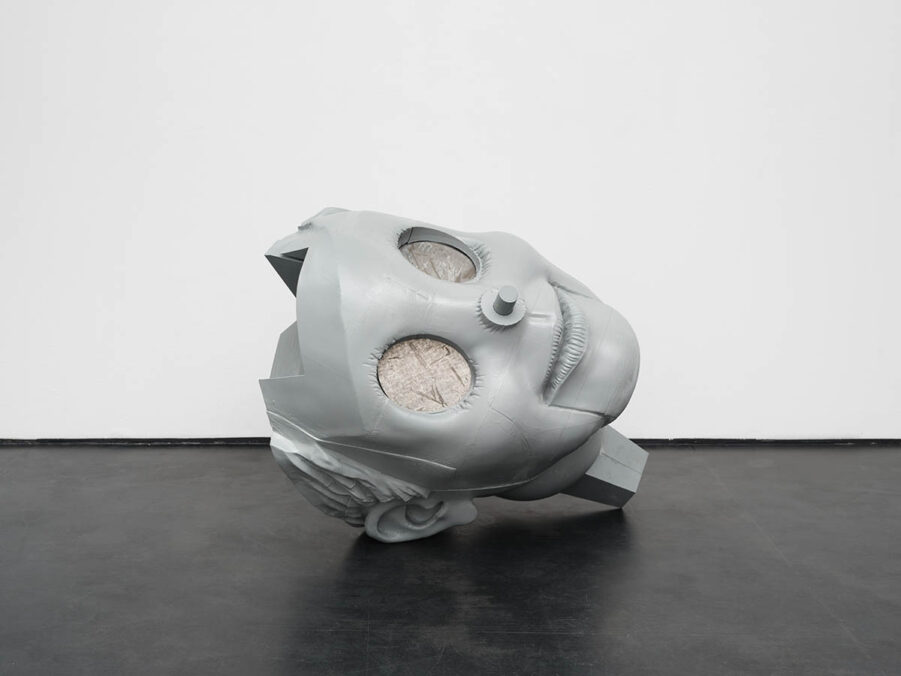
Lou Jaworski‘s work often pushes the limits and metaphorical meanings of materials. For LA NOTTE VERTIVAL REMIX (2024), he cut thin cylinders of serpentino verde and installed them on the wall like neon tubes. In this way, the solid materiality of serpentinite, with its high iron content, takes on the fragile connotations of glass. However, the deep dark color of the Italian stone contrasts with the usual bright light source, suggesting an association with a black light tube. The 120 cm long rods also reveal the material memory of the stone, like samples from geological cores. In addition, the vertical arrangement of the two tubes, installed one on top of the other, creates the impression of a column and draws attention to the surrounding architecture, which is affected by the work.
The exhibition is accompanied by an exhibition text by curator and art historian Philipp Lange.
Solo exhibition: Lou Jaworski NATURE
Opening: Friday 9 February 2024, 6 pm
Exhibition duration: 9 February – 23 March 2024
Address and contact:
max goelitz
Rudi-Dutschke-Strasse 26, 10969 Berlin
www.maxgoelitz.com
Lou Jaworski (*1981 in Warsaw, PL) follows a post-minimalist approach with a reduced visual language in his sculptures, installations, and prints. By using metaphorically or physically charged materials such as marble, ferrite magnets, graphite, and meteorites, he achieves a timeless and universal level in his work. For some of his works, Jaworski uses hardware from server racks as architectural structures to explore the potential of material memory and storage. The strong haptic presence of the chosen materials often evokes both mystical and digital references to grids and 3D renderings. Interested in metaphysical questions, pictorial traditions, and phenomena of human perception, Jaworski‘s conceptual works are characterized by the interplay of material autonomy, ephemeral abstraction, and physical laws, which he implements in a space-specific manner. The artist understands his works to be amplifiers of architectural elements and material properties, as well as trains of thought and energies, which combine to form expansive installations.




